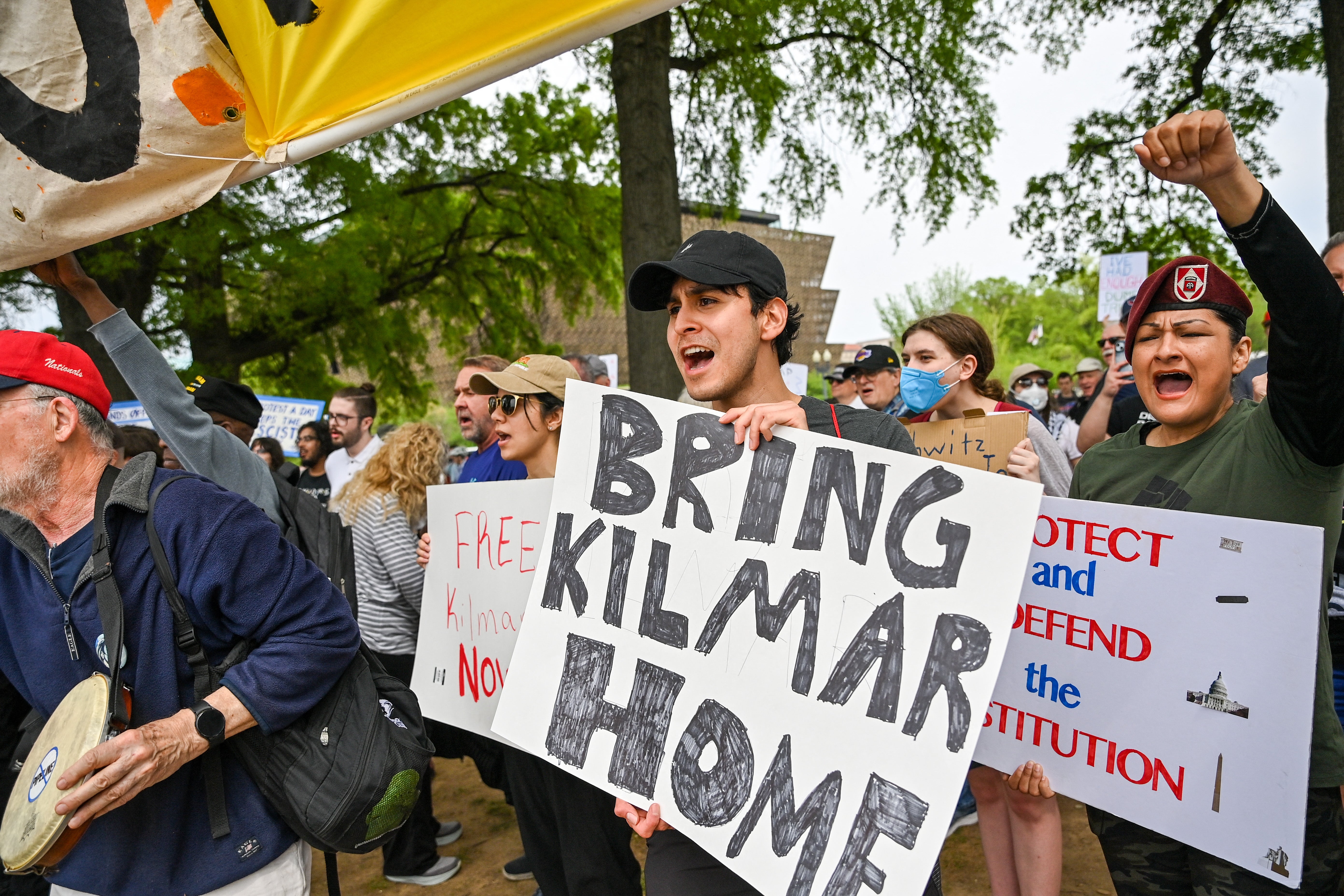The federal judge presiding over the case of Kilmar Abrego Garcia blasted Donald Trump’s administration for trying to “obstruct” efforts to learn more about the government’s wrongful deportation of a Maryland father with “vague” and “evasive” answers to court-ordered questions.
Judge Paula Xinis torched government attorneys for their “willful and bad faith refusal” to respond to court orders for details about Abrego Garcia and their “unsubstantiated assertions of privilege” for their “specious” attempts to “evade compliance.”
The judge’s order on Tuesday followed a series of questions presented to the government from attorneys for Abrego Garcia, after Judge Xinis called for an “intense” two-week inquiry into what, if anything, the government is doing to “facilitate” his return to the United States, and whether the Trump administration has done anything at all in response to court orders.
“Defendants have failed to respond in good faith, and their refusal to do so can only be viewed as willful and intentional noncompliance,”Judge Xinis wrote.
On Wednesday, the Trump administration filed a sealed document asking the judge to pause discovery for seven days.
Attorneys for Abrego Garcia are seeking the government’s “complete factual bases” for alleging he is a member of MS-13. Judge Xinis said the government cannot simply accuse him of being a member of the international gang without providing evidence to the court.
“Defendants cannot invoke the moniker of MS-13 as responsive to the Court’s previous order … then object to follow-up interrogatories seeking the factual bases for the same,” she wrote.
Abrego Garcia fled gang violence in El Salvador in 2011 when he was 16 years old. He entered the United States illegally at the time but a judge in 2019 granted a withholding order that prevents his removal from the country for humanitarian reasons. He is a sheet metal apprentice in Maryland, where he has been living with his wife and five-year-old child, both U.S. citizens. The couple is also raising two other children from a previous relationship.
On March 15, he was deported to El Salvador’s brutal Terrorism Confinement Center. Last week, it was revealed he was moved to a different prison in the country roughly two weeks ago.
Despite the White House and government lawyers repeatedly admitting that Abrego Garcia’s removal was due to an “administrative error,” administration officials are refusing to seek his return and instead are fighting in court to continue his imprisonment as an alleged member of MS-13, which Trump has labelled a foreign terrorist organization.
Administration officials — who are now walking back their admission that he was deported in “error” — argue that allegations against Abrego Garcia supersede any court order against his removal.
Last week, as Maryland Democratic Senator Chris Van Hollen traveled to El Salvador to meet with Abrego Garcia, administration officials pushed a series of allegations of criminality against him, none of which have been submitted in court.
On Friday, the president posed with a photograph of Abrego Garcia’s hands, which administration officials claim show evidence of tattoos signaling MS-13 membership — a claim flatly rejected by his family and attorneys and disputed by gang crime experts.
Federal law enforcement routinely relies on tattoos and apparel to link suspects to gang activity, even if no other evidence against them is present.

Earlier this month, the Supreme Court unanimously ordered the Trump administration to “facilitate” his “release from custody in El Salvador.” Last week, Judge Xinis officials for doing “nothing” since then and ordered attorneys to report what steps, if any, they are taking to secure his release.
Judge Xinis criticized the administration for its “continued mischaracterization” of the Supreme Court’s order to “facilitate” Abrego Garcia’s release.
“That Order made clear that this Court ‘properly required the Government to “facilitate” Abrego Garcia’s release from custody in El Salvador,’” she wrote.
Following the Supreme Court’s order, Judge Xinis ordered daily updates on Abrego Garcia’s condition and the steps the government is taking to “facilitate” his release.
But administration officials have publicly claimed that the Supreme Court’s ruling said no such thing, and government lawyers in court documents have raised a series of arguments to avoid answering, including attorney-client privilege and “state secrets” privilege
“The State Department has engaged in appropriate diplomatic discussions with El Salvador regarding Abrego Garcia,” Justice Department lawyers wrote earlier this month. “However, disclosing the details of any diplomatic discussions regarding Mr. Abrego Garcia at this time could negatively impact any outcome.”
Judge Xinis said she “requires specific legal and factual showings to support any claim of privilege.”
“Yet they have continued to rely on boilerplate assertions,” she wrote Tuesday. “That ends now.”
The government’s latest court-ordered was, for the first time, filed under seal, only for the judge’s review.
Government attorneys must answer by 6 p.m. ET Wednesday.







